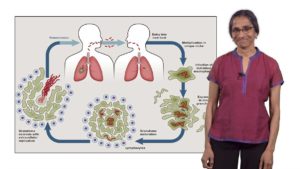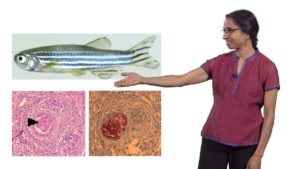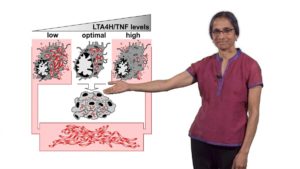Dr. Lalita Ramakrishnan is a professor of immunology and infectious diseases at the University of Cambridge, UK. She received her medical degree from the Baroda Medical College in India, and her PhD in Immunology from Tufts University in Boston. After completing her medical residency at Tufts and a fellowship in Infectious Diseases at the University of California, San Francisco, she joined the lab of Dr. Stanley Falkow at Stanford University as a postdoctoral fellow. There she developed Mycobacterium marinum as a model for to study tuberculosis pathogenesis. She then joined the faculty at the University of Washington, where her laboratory developed the zebrafish infected with M. marinum as a model for tuberculosis. In 2014, she moved to the University of Cambridge, where her laboratory continues to unravel the molecular underpinnings of TB pathogenesis.
Ramakrishnan’s work has been recognized with several awards and honors, including the NIH Director’s Pioneer Award, the Wellcome Trust Principal Research Fellowship and election to the US National Academy of Sciences (2015). Learn more about Ramakrishnan’s research here.







